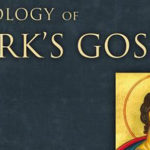Posted: 4/25/08
Books: The Problem with Evangelical Theology
The Problem with Evangelical Theology by Ben Witherington III (Baylor University Press)
Ben Witherington, professor of New Testament at Asbury Theological Seminary, contends that evangelicals are, in general, biblically illiterate and tend to embrace theology that would be unknown to the early church fathers prior to St. Augustine. Instead, they often cling to their respective denominational doctrines without thoroughly examining the scriptural texts, often unwilling to do the hard work of learning the original languages and deeply studying the contexts of the writings.
Witherington illustrates by critiquing the interpretive foundations of Calvinism, Dispensationalism and Wesleyanism (his own background). This Bible study commentary makes up the main body of the book and definitely should be read with one’s own open copy of the Scriptures in hand.
 |
| What are you reading that other Texas Baptists would find helpful? Send suggestions and reviews to [email protected]. |
Even though Christians approach God’s word with their own experiences and points of view, “when one speaks about interpreting the biblical text according to a certain tradition, one has already made certain assumptions about what should have priority in interpretation—namely, the tradition rather than the Scripture itself,” Witherington insists.
We would do well to clothe ourselves with humility, seek the Holy Spirit for guidance, and take a cue from the spirit of the Reformers to be continually on a journey of reforming our theology.
Greg Bowman, minister to students
First Baptist Church
Duncanville
The Reason for God: Belief in an Age of Skepticism by Timothy Keller (Dutton Books)
 |
Timothy Keller’s The Reason for God: Belief in an Age of Skepticism has turned me into a cheerleader, megaphone in hand, shouting: “Buy this book! Buy this book!”
Why the enthusiasm? Allow me to list as many reasons as I can until my allotted space runs out:
Keller, pastor of Redeemer Presbyterian Church in New York City, treats skeptics seriously and charitably—something many Christian apologists fail to do. He addresses the major doubts that plague both Christians and agnostics—God and suffering, the challenge of other religions, reconciling faith and science, un-Christlike Christians, and several others. In the process, Keller convincingly demonstrates that skepticism leans on its own “faith statements.” Beyond addressing doubts, Keller also provides deep clues for seeing how a Christian view of the world is credible, helpful and ultimately hopeful.
This book will refresh your theology, introduce you to key thinkers and writers, and model a way to share your faith that is intellectually credible, and not manipulative or abrasive.
I’ll say it again: “Buy this book!”
Larry Parsley, pastor
Valley Ranch Baptist Church
Coppell
Beyond Creation Science: New Covenant Creation from Genesis to Revelation by Timothy P. Martin and Jeffrey L. Vaughn (Covenant Community Church)
 |
Christians who like serious writing that most of us without Ph.D.s can grasp should investigate this labor of love by Timothy P. Martin, an elder in a Reformational church in Montana, and Jeffrey L. Vaughn, a Christian who also is a scientist.
The title gives it away: Martin and Vaughn are convinced young-earth creationism is in error. But—and this is significant—they go to great pains to communicate why not all old-earth creationists are telling the biblical story right, either. They want you to weigh the Bible on its own terms. The only fair-minded way to do that is to take a careful examination of the comparative uses of biblical language.
Martin and Vaughn imply intelligent design is promising, and they reject “atheistic evolution.” They do not do the best job possible of distinguishing between evolution, as defined by many people who are devout Christians, and atheistic evolution.
What they do right, however, is provide a comprehensive theological defense of why it is both incorrect and harmful to Christian credibility to inappropriately apply global phrases to planet Earth. They build their case that Christian theology will come to grips with the divisive issues of the age of the earth and the riddles of Bible prophecy together, not apart. The same rules of language demand the same conclusions.
Paul Richard Strange
Shiloh Cumberland Presbyterian Church
Midlothian
Sign up for our weekly edition and get all our headlines in your inbox on Thursdays














We seek to connect God’s story and God’s people around the world. To learn more about God’s story, click here.
Send comments and feedback to Eric Black, our editor. For comments to be published, please specify “letter to the editor.” Maximum length for publication is 300 words.